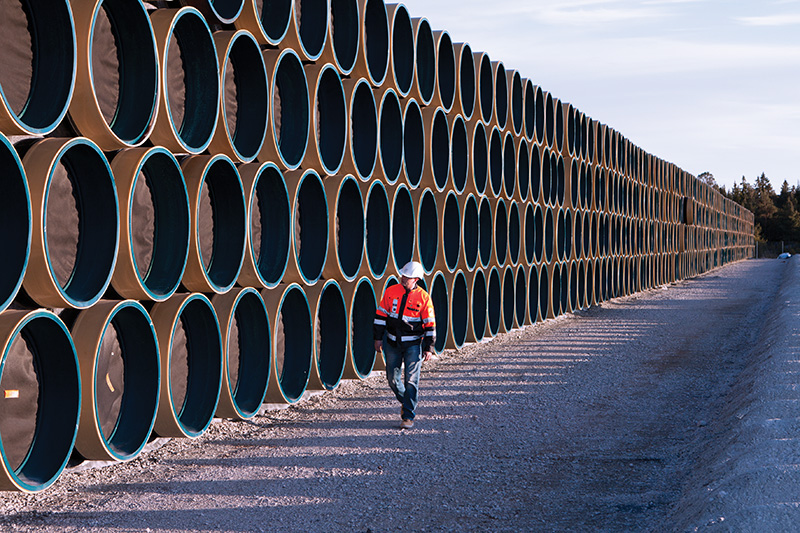Germany Plans 1,118-Mile Hydrogen Pipeline Network by 2027
(Reuters) — Germany plans to develop an 1,800-km (1,118-mile) hydrogen energy pipeline network by 2027 with state participation, according to an economy ministry draft strategy paper seen by Reuters on Friday.
The paper also envisages Germany fostering the use of blue hydrogen and importing it during a transition period towards green hydrogen.
Europe's largest economy wants to pivot towards cleaner energy sources and diversify its supplies, especially after the invasion of Ukraine underscored the pitfalls of a heavy reliance on Russian natural gas.
The creation of a hydrogen network company with state participation was needed to build a system that was both fit for purpose and affordable, the paper said. The government will present its plans to industry shortly.
The government also envisages Germany doubling its electrolysis capacity to ten gigawatts by 2030, the paper said.
Chancellor Olaf Scholz in September said Germany wants to create a boom in the use of hydrogen as a way of diversifying its energy sources and to meet its climate goals.
Blue hydrogen is extracted from natural gas and captures the CO2 emissions in underground or subsea storage. It is seen as a transitional approach while green hydrogen, which uses renewable energy for extraction, cannot fully meet demand. Some environmentalists oppose it.
Related News
Related News

- Kinder Morgan Proposes 290-Mile Gas Pipeline Expansion Spanning Three States
- Enbridge Plans 86-Mile Pipeline Expansion, Bringing 850 Workers to Northern B.C.
- Three Killed, Two Injured in Accident at LNG Construction Site in Texas
- Tallgrass to Build New Permian-to-Rockies Pipeline, Targets 2028 Startup with 2.4 Bcf Capacity
- TC Energy Approves $900 Million Northwoods Pipeline Expansion for U.S. Midwest
- U.S. Pipeline Expansion to Add 99 Bcf/d, Mostly for LNG Export, Report Finds
- Enbridge Adds Turboexpanders at Pipeline Sites to Power Data Centers in Canada, Pennsylvania
- Great Basin Gas Expansion Draws Strong Shipper Demand in Northern Nevada
- Cheniere Seeks FERC Approval to Expand Sabine Pass LNG Facility
- Heath Consultants Exits Locate Business to Expand Methane Leak Detection Portfolio





Comments